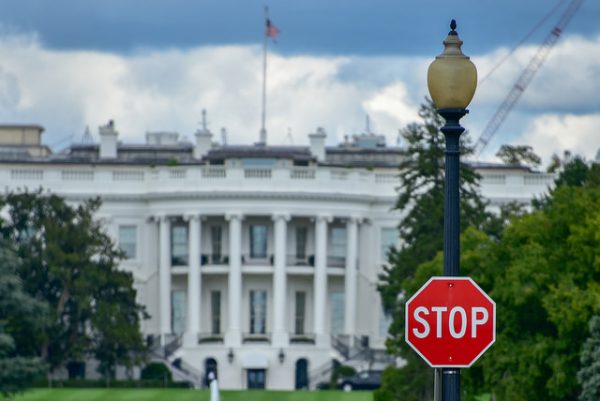What Is the Trump Tax Plan Going to Do to Our 401(k)s?

Photo credit: angela n., CC BY 2.0.
I’ve been avoiding this story because I kept hoping it would change—I mean, that’s how our current administration operates, right?
But here’s what happened this morning, courtesy of the NYT:
The House on Thursday sounded the starting gun on legislative efforts to cut taxes by as much as $1.5 trillion over the coming decade, narrowly clearing a budget blueprint that will allow a tax bill to pass Congress without any Democratic votes.
Now that they’ve knocked that Do 1 Thing Thursday task off their list, we’re one step closer to the Trump Tax Plan, which is scheduled to be unveiled on November 1 and passed before Thanksgiving (although I’ll eat an extra turkey leg if that actually happens), which means we have to look at the question on everybody’s minds: what is going to happen to our 401(k)s?
Here’s what our president says will happen:
There will be NO change to your 401(k). This has always been a great and popular middle class tax break that works, and it stays!
— Donald J. Trump (@realDonaldTrump) October 23, 2017
That’s… reassuring.
Here’s what lobbyists and consultants say might happen, again from the NYT:
The proposals under discussion would potentially cap the annual amount workers can set aside to as low as $2,400 for 401(k) accounts, several lobbyists and consultants said on Friday. Workers may currently put up to $18,000 a year in 401(k) accounts without paying taxes upfront on that money; that figure rises to $24,000 for workers over 50. When workers retire and begin to draw income from those accounts, they pay taxes on the benefits.
The theory is that, by reducing the amount of pre-tax income we can put into our 401(k)s and traditional IRAs, those of us who want to save more for retirement will have to put our money somewhere else—like a Roth IRA, where it’ll be taxed now and withdrawn tax-free later.
Which means the government gets more taxes now. That is THE WHOLE POINT OF THIS PLAN.
There’s a LA Times editorial arguing that a Roth IRA is better than a 401(k) anyway, like, duh, don’t you even know how the tax system works:
Many, even most, people may actually end up with more money to spend in retirement if they go the Roth route of deferring their tax exemption into the future.
The reasons are complicated and the results are dependent on individuals’ tax situations as well as the growth rate of their retirement accounts. But they boil down to the fact that the future tax exemption, even for those with a lower tax rate in retirement, gets applied to a much larger sum than the current-year deduction.
But the trouble is that the tax system can change at any time.
For example, it could change before Thanksgiving.
Are you following the Trump Tax Plan at all? Are you worried about what might happen to your retirement contributions? Or are you just assuming that whatever plan gets put forward will be changed fifteen times, voted on three times, and then subjected to a series of executive orders—and you won’t be able to do anything about any of it, so why worry?
Support The Billfold
The Billfold continues to exist thanks to support from our readers. Help us continue to do our work by making a monthly pledge on Patreon or a one-time-only contribution through PayPal.
Comments